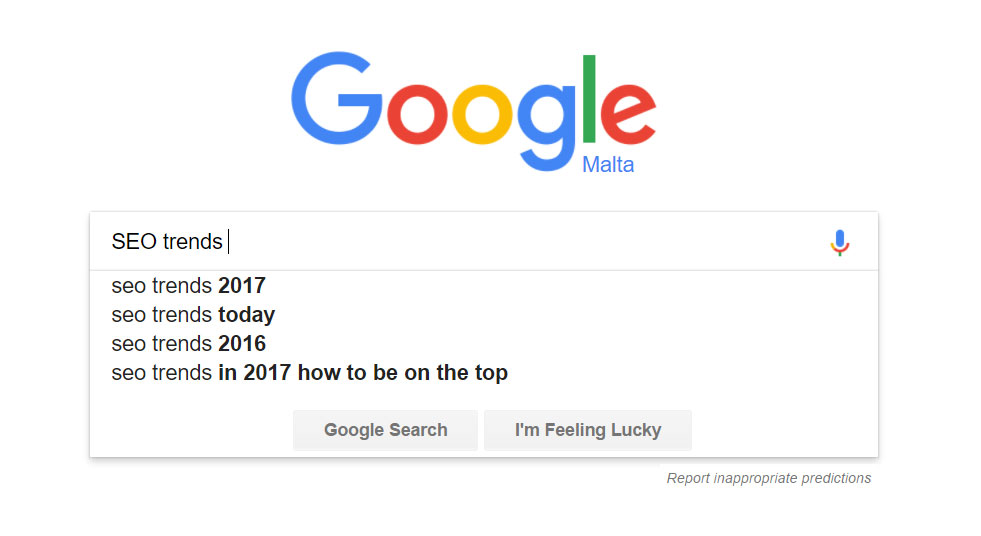Most websites have the majority of their visitors coming from search engines. Yet Search Engine Optimisation have during the last couple of years have been operating in the shadows of social media and general online advertising. But it is increasingly having a new matter of importance in marketing organisations. Where is SEO going and what can we expect in the future?

Back to basics
In the golden days of SEO it was rather straightforward on how to rank. Master the basic technical SEO (sitemaps, domain structure etc) and generate inbound authority links. This basically meant higher ranking (back when Google was using PageRank as their main ranking factor).Of course blackhats and brands with bad SEO agencies took advantage of this and tried to game the system. While quality link building still is a valid SEO tactic, Google responded with adding multiple factors that have effects on ranking. These include quality content, page authority, social media signals and recently AI ranking algorithms (RankBrain).
The above together with that more brands turned to buying keywords making them more expensive is causing a “back to basics” mentality in the SEO world. The basics being creating quality content that will attract traffic both organically in Google and from social media. This trend has been going on for a while, and is expected to continue. The content itself is usually (or should not in my opinion) be developed solely for SEO. Primarily it should be used to establish a brand as a thought leader and inspiration cross channels.
Domains will be less important
The main building blocks of SEO has been basics like domain authority and page ranking. It is centered around the notion that the content people really want is on a domain. Yet many successful influencers today barely have a website, but offer superb content. Try finding a specific social media post in Google for example, this will require you to go the social media network in question, and search for it there.
This gap will probably be bridged and we can expect search engines in the future to be better at supplying a complete overview of a subject also from social networks and other sources that does not have to be a domain owned by a brand or individual.
Mobile will be essential
This is written in 2017 and worldwide smartphone users are forecasted to be about 2.1-2.6 billion! Most of us that are in the business know how important and basic mobile responsive websites are. Google have for some time now promoted mobile first indexing, this means that websites that are build for mobile devices will rank higher than websites with only a desktop version. If you website is not responsive at this point, there is little use in doing anything else SEO-related before it is.
To get more technical Google and Twitter also released their AMP framework that will reduce loading times on mobile devices for websites.
Social media signals and SEO
As mentioned earlier in this post social media does have some effects on search engine ranking. The pure reason is of course that it is easy for Google to identify popular content and to some extent quality content.
As the leaders in social media is changing one would expect Google to adjust their ranking algorithms to where the attention is. Thus for a brand looking to rank higher in Google it will be essential to have a solid social media presence.
Voice activated search
Voice search is becoming increasingly important after Alexa was released by Amazon. Now people can talk to Alexa in their homes and it actually works (in contrast to Siri). Obviously Amazon competitors such as Google (OK Google), Apple (Siri) and Microsoft (Cortana) will try to get their piece of the pie. Apple for example recently announced Homepod, their own version of Amazon Echo (with Siri of course). As these apps gain traction brands will have to start optimize their content for voice search.
According to Comscore 50% of searches will be made by voice in 2020.
AI:s impact on SEO
AI will help in making predictions of your needs and surfing habits based on previous visited pages, Googled terms and various other information. As AI is becoming better and better, it will help to predict what you are looking for, perhaps even before you start looking.
For brands this means that they need to add the AI complexity to their future SEO-strategies.
Other ranking factors valid right now and tomorrow
Google has for a long time been good at excluding websites that have been hacked or are spreading viruses. A ranking factor that many brands are still not really implementing (yes my websites are included) is the HTTPS protocol. Google has been clear that they want websites to switch to HTTPS, but the ranking boost has been minor. This will probably change as online security is becoming more and more important.
Speed up your website! It has been a known fact for a decade that fast websites get ranked higher in Google, this will continue also in the future.
